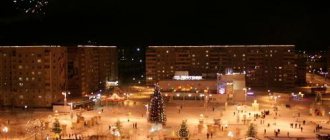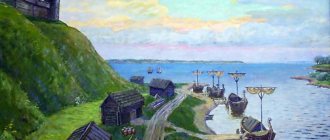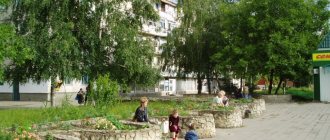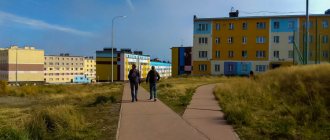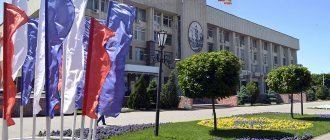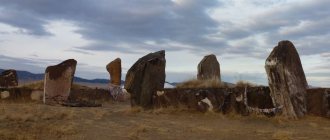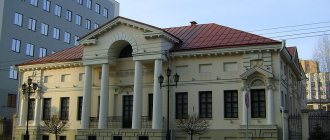Korkino is a small industrial city that grew up 40 km south of Chelyabinsk on the site of a giant coal deposit.
The history of Korkino begins in the mid-18th century. Then it was a small village, which remained just a village until a large coal deposit was discovered near the settlement in 1931. Active coal mining did its job, and already in 1942 Korkino received city status. Now it is home to about 35 thousand people.
It is the Korkinsky coal mine , which tops the list of the deepest coal mines in Russia, that is the main and only magnet that attracts tourists to this city. We also decided to go to Korkino to look at the giant quarry, and at the same time walk through the streets of the city in search of some other attractions!
Lenin Street
We start our walk around Korkino from Lenin Street, or rather from the bus station. We arrived in the city from Chelyabinsk on the morning bus. Travel time is exactly an hour, ticket price is 100 rubles.
This is what our bus looked like. It’s very nice that it’s not a minibus, even though there were few passengers.
Bus Chelyabinsk-Korkino
The bus station looks very conventional - it’s just a stop with a bus schedule and a room with ticket offices.
Ticket offices in Korkino
By the way, until the mid-90s you could get from Chelyabinsk to Korkino by train. There are two railway lines leading to Korkino at once, and both of them were passenger lines. Behind this brick two-story building is the Korkino railway station, now a freight station.
Bus station in Korkino
Getting off the bus, we immediately see the first attraction of Korkino - a monument to miners, miners and builders of the city of Korkino . It was installed in 1984 to mark the 50th anniversary of the coal mine.
Monument to miners, miners and builders of Korkino
Lenin Street near the station, like a gate to the city, welcomes guests with ceremonial “Stalin” cars. Of course, the houses are as “ceremonial” as a small provincial town in the Urals could afford: minimal decor, no columns and no belvederes.
Houses on Lenin Street in Korkino
Walking a little forward, it turned out that the rest of Lenin Street was built up with brick Khrushchev buildings. All houses are no higher than 5 floors and were built between 1957 and 1968.
Houses on Lenin Street in Korkino
In the center of Lenin Street there is a shady boulevard - one of the legacies of the Soviet Union. In large cities, such boulevards are leveled with asphalt to widen the roadway. And in small towns there is no need to mindlessly cut down trees.
Boulevard on Lenin Street in Korkino
New stops:
But no miracles happened with transport; minibuses travel around the city.
Public transport in Korkino
In the very center of the city they sell milk from a barrel. In the summer, they probably bottle kvass nearby.
